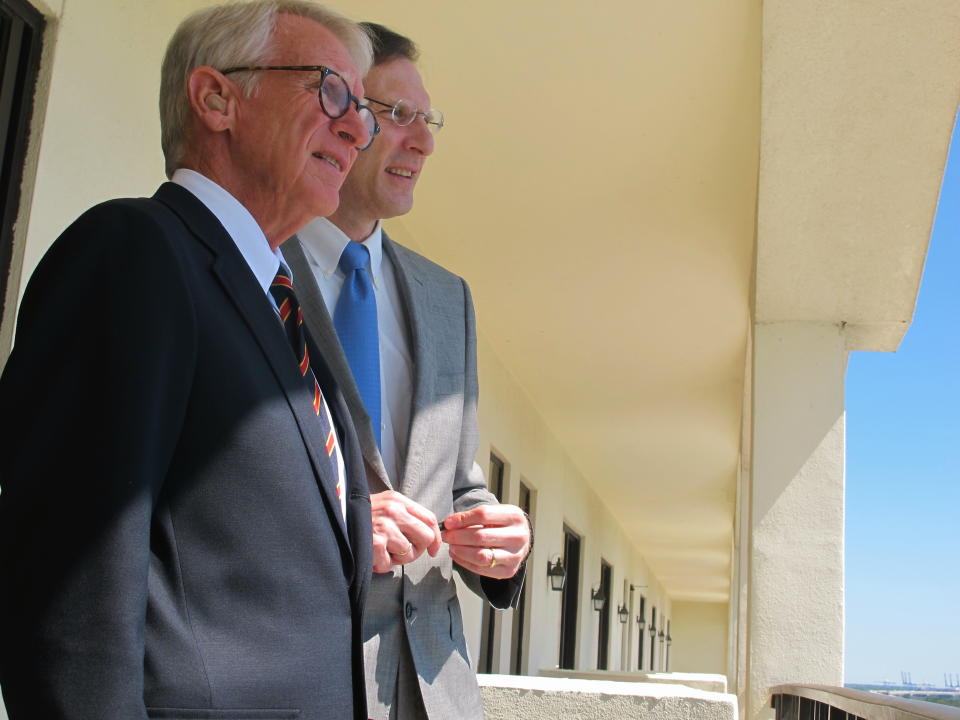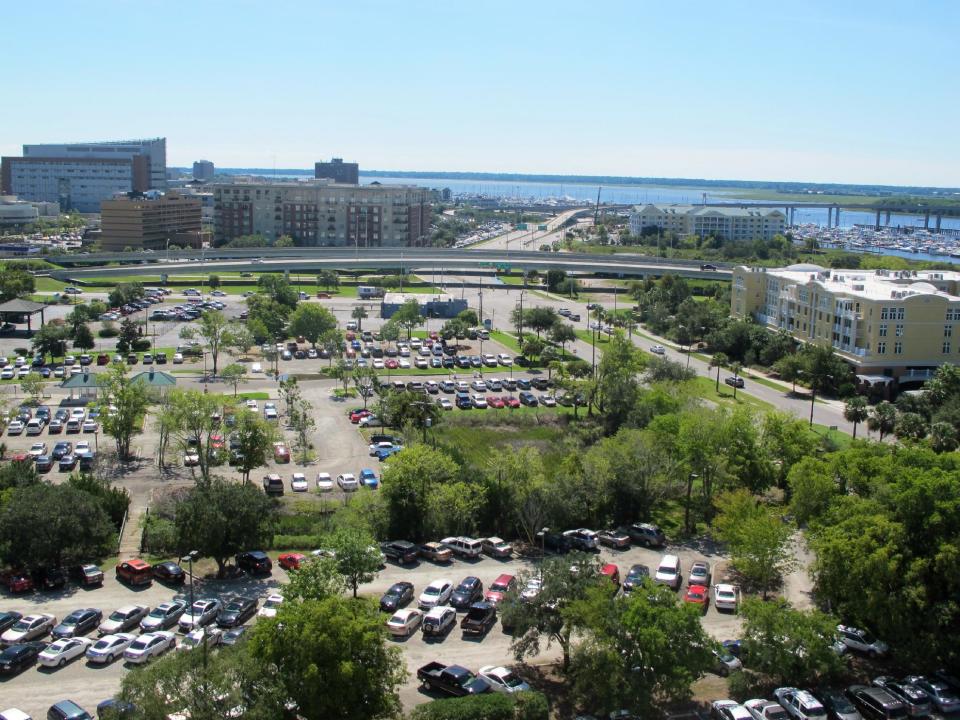Charleston, MUSC announce $1B, 20 year project
CHARLESTON, S.C. (AP) — Charleston and the Medical University of South Carolina announced plans Monday for a joint public-private $1 billion development that would transform undeveloped land near the Ashley River into what could be the largest single development in Charleston's almost 350-year history.
"This will be a beautiful new part of this old and historic city," Mayor Joseph P. Riley Jr. said as he was joined by university President Dr. Raymond Greenberg and officials in announcing plans for the Horizon District.
The area is a 20-acre section of undeveloped land near the river between the city's medical complex and The Citadel. About half the land is owned by the city, the rest by MUSC. Most of the area is now is either undeveloped or used for surface parking.
Greenberg said the project would include 2 million square feet of housing, retail space and space for research and technology businesses marketing clinical applications derived from basic research done at the university.
Housing is a key part of the project, allowing some of the 12,000 people who work at the university to walk to their jobs while easing traffic congestion in the city, he said.
Greenberg also said that the Horizon project would bring retail development to an area of the city that has little. Most of the areas stores are further south on the Charleston peninsula. Residential areas bordering the Horizon area are lower-income neighborhoods and the development would provide needed jobs.
Officials announced Monday they are sending out proposals for company to serve as the master developer for the site.
Much of the investment, which officials predicted could approach $1 billion when the entire area is developed in about 20 years, will be from private investors.
Riley called Horizon an urban development, not renewal, project. No land will be taken under eminent domain for the project, which the mayor said is likely the largest in Charleston's history.
"I would think so," he said. "There's been nothing before of this scale so it might indeed be the largest."
Greenberg said that Horizon, a mixed-used development, will be different from Innovista — a similar public-private partnership by the University of South Carolina to nurture high-tech companies in Columbia.
That project has been plagued by problems with developers and was hampered by the economic downturn.
"That was more along the line of a traditional research park. They put a lot of public money into that," Greenberg said. "We're not really talking about that. We're talking about letting this be led by the private sector in terms of financing and building."
He said the concept for Horizon was discussed six or seven years ago but did not move forward earlier because officials were waiting out the troubled economy.
_____
On the Internet:
Charleston Horizon: http://charlestonhorizon.com/
____
Follow Bruce Smith at http://twitter.com/brucesmithap


